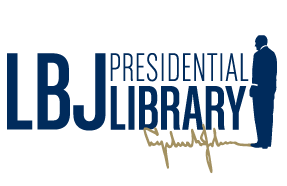Across the River and into the Trees
Artifact ID1973.1.678
Object Type
Cartoon Drawing
Artist
Richard Yardley
(1903 - 1979)
Gifter
Richard Yardley
Publisher
Baltimore Sun
()
Medium
Ink and developer on Craftint paper
DimensionsOverall H 22 1/8 in x W 17 5/8 in (56.2 cm x 44.8 cm )
Physical DescriptionPhysical DescriptionOriginal cartoon drawing. An army lands their ships on a beach adjacent to a body of water (“House Passage”). One man (“Dirksen”) leads a group of men onto the beach. Another man (“Douglas”) leads a group that carries a flag (“Civil Rights Bill”). Another man (“Clark”) runs by a sign (“You are occupying this beach courtesy of Lyndon Johnson”). On the beach, LBJ defeats another man (“Sen. Eastland”). In the sky, a man (“Nixon”) flies and points toward a forest (“Senate”), where pairs of eyes (“Byrd”, “Talmadge”, “Long”, “Sparkman”, “Gen. Russell”) are hiding. In the leaves of a tree, a man (“Thurmond”) points a gun at his opponents. In the distance, a ship (“Southern Dem. - GOP Coalition”) is sinking and men jump out of the ship into the water. In the foreground on the left, a man (“Press”) looks at a bowl (“‘K’ Rations (Kawnpone, Kandyyams & Katfish)”). Next to him, a cat looks at the fight with binoculars. Caption: “Across the River and into the Trees”. Artist signature lower right: "Yardley...Veteran reporter of the 1960 Potomac Campaign.”.
Inscriptions and MarkingsSketches for other cartoons on back. Handwritten at upper left: [underline] “36.5”. Handwritten at lower center: “3 col (6 ¼ in) Editorial”. Handwritten at lower right: “ - Thursday AM”.
Historical NoteWhen this cartoon was made, Senator Lyndon Johnson was the Senate Majority Leader. Because southern white segregationists formed a significant portion of the Democratic Party until the early 1960s, President Johnson tried not to alienate them earlier in his political career. He weakened the Civil Rights Act of 1957 so that it would pass through the Senate and not break up the Democratic Party. The Civil Rights Act of 1960 made it illegal to prevent someone from registering to vote. While the act was not very effective, it provided proof for voter disenfranchisement and paved the way for the Voting Rights Act of 1965.Additional Details
Custodial History NoteThe item was a gift from the general public to President Johnson during his term in office. It was received by President Johnson, until the President donated it to the Lyndon Baines Johnson Library and Museum in 1973.
Credit LineGift of Lyndon Baines Johnson
National Archives Catalog CollectionLyndon B. Johnson Library Museum Collection (National Archives Identifier 192413)
National Archives Catalog SeriesGifts from the General Public (National Archives Identifier 189698395)
Use Restriction StatusRestricted - Fully
Use Restriction NoteCopyright or other proprietary rights are held by individuals or entities other than the LBJ Presidential Library and Museum. The LBJ Presidential Library and Museum does not warrant that the use of materials will not infringe on the rights of third parties holding the rights to these works, or make any representations or warranties with respect to the application or terms of any international agreement, treaty, or protections that may apply. It is your responsibility to determine and satisfy any copyright or other use restrictions. Pertinent regulations can be found at 36 C.F.R 1254.62.
Person Referenced
Everett Dirksen
(American, 1896 - 1969)
Person Referenced
Robert C. Byrd
(American, 1917 - 2010)
Person Referenced
Lyndon Baines Johnson
(American, 1908 - 1973)
Person Referenced
Paul H. Douglas
(American, 1892 - 1976)
Person Referenced
Herman Talmadge
(American, 1913 - 2002)
Person Referenced
Richard Nixon
(American, 1913 - 1994)
Person Referenced
Russell B. Long
(American, 1918 - 2003)
Person Referenced
Joseph S. Clark Jr.
(American)
Person Referenced
John Sparkman
(American, 1899 - 1985)
Person Referenced
James Eastland
(American, 1904 - 1986)
Person Referenced
Richard Russell
(American, 1897 - 1971)
In Collection(s)
Not on view
Place of Publication




